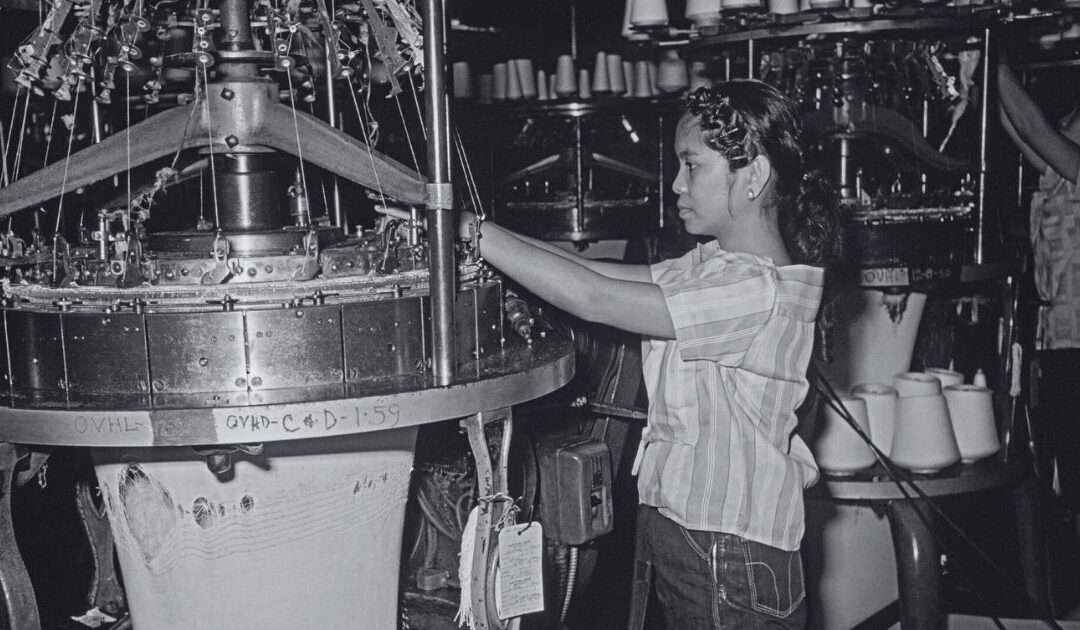“Apat Na Dapat” – lowering living costs, raising wages, creating jobs, and fighting poverty – captures worker aspirations. They demand concrete government action, not charter change.
A recent Pulse Asia survey shows a strong public opposition to charter change, with 88% against it. While the reasons for this remain unclear, especially considering the limited knowledge of the Constitution among nearly half of the respondents, the working class stands firm in its opposition.
Workers prioritize urgent needs. A separate Pulse Asia survey reveals that charter change is not among Filipinos’ top concerns. Instead, Filipinos seek solutions to inflation (63%), wage increases (44%), job creation (31%), and poverty (30%).
These “Apat Na Dapat” – lowering living costs, raising wages, creating jobs, and fighting poverty – capture worker aspirations. They demand concrete government action, not charter change.
Proponents’ vision for charter change prioritizes foreign capital and dynasties, not workers’ concerns. Whether through a people’s initiative or resolutions of both Houses (RBH) 6 & 7, it disregards workers’ “Apat Na Dapat” demands. Unsurprisingly, the labor movement actively opposes it.
Under the banner “Sahod Itaas, Chacha Iatras” (Raise Wages, Stop Charter Change), workers rally against skyrocketing inflation and stagnant wages. They demand a legislated P100 daily wage increase, already approved by the Senate. Meanwhile, the House deliberates on P150 and P750 proposals. Regrettably, before the Holy Week break, the House prioritized RBH No. 7 over these crucial wage hikes. Workers urge swift action to pass these bills before May 1.
For 35 years, regional wage boards haven’t lifted Filipinos above poverty. The current system offers “starvation wages” instead of the Constitutionally-mandated living wage. Workers demand an overhaul of RA 6727.
A living wage, the cornerstone of social justice in the Constitution, remains elusive despite economic growth. It’s critical to alleviate worker family burdens. Additionally, robust labor protections safeguard workers’ rights during economic changes and worsening climate conditions.
In the face of crises, workers deserve comprehensive support. Ignoring these needs while prioritizing irrelevant charter change erodes the Constitution’s “primacy of labor over capital” principle.
Labor Day celebrates the unwavering spirit and sacrifices of the working class. From securing eight-hour workdays to union rights and fairer wealth distribution, their fight continues. The current Constitution, though weakened, protects these rights. Charter change threatens these and other social justice provisions.
We, the working class, will not be silent. We will never give up.
Siklab People’s Organization against Charter Change
Convenors Group
Kidapawan Bishop Jose Colin M. Bagaforo, Chair, CBCP Episcopal Commission on Social Action, Justice and Peace/Caritas Philippines; Bishop Melzar Labuntog, Chairperson, National Council of Churches in the Philippines; Minnie Anne Mata-Calub, General Secretary, National Council of Churches in the Philippines; Bishop Noel Pantoja, National Director, Philippine Council of Evangelical Churches; Bishop Jonel Milan, Convenor, K4Philippines Intercessors Movement; Senator Risa Hontiveros, Senate of the Philippines; Teresita Quintos Deles, Convenor, Tindig Pilipinas/Buhay ang EDSA Campaign Network; Josua Mata, Co-Convenor, Nagkaisa Labor Coalition/Kalipunan ng Kilusang Masa; and Justine Balane, Chairperson, Akbayan Youth
Member Organizations
Akbayan Party; Akbayan Youth; Alyansa ng Samahang Pantao (ASAP); Alyansa Tigil Mina; August Twenty One Movement (ATOM); Buhay Ang Edsa Campaign Network; Caritas Philippines; Center for Youth Advocacy and Networking (CYAN); Coali7on Against Trafficking in Women- Asia Pacific (CATW-AP); Damayan ng Mamamayang Pilipinong Api (DAMPA); EveryWoman; February 25 Movement; Federa7on of Free Workers-Nagkaisa ; Halalang Marangal; In Defense of Human Rights and Dignity (iDEFEND); Kalipunan ng Kilusang Masa; Kilos Maralita; Kilusang Makabansang Ekonomiya (KME); K4Philippines Intercessors Movement; Magdalo Para sa Pilipino; Model SK Network ; Nagkaisa Labor Coalition; Ninoy and Cory Aquino Foundation (NCAF); Pambansang Kilusan ng mga Samahang Magsasaka (PAKISAMA); Partido Manggagawa-Nagkaisa; People Power Volunteers for Reform (PPVR); SENTRO-Nagkakaisa; Simbayanihan; Solidar / Talesayen; Solidarity for Truth and Justice – Clergy for Moral Choice; Student Council Alliance of the Philippines (SCAP); The CSO Guild (TCG), and, Tindig Pilipinas
Partners and Observers
Catholic Educational Association of the Philippines (CEAP); Conference of Major Superiors in the Philippines (CMSP); Daughters of Charity of Saint Vincent De Paul; Philippine Miserior Partnership (PMPI); Sangguniang Laiko ng Pilipinas, Simbahang Lingkod ng Bayan (SLB), and Urban Missionaries.
Photo: Woman operating machinery in textile mill Philippines, 1960. (Harrison Forman, American Geographical Society Library, University of Wisconsin-Milwaukee. Courtesy of John Tewell)

